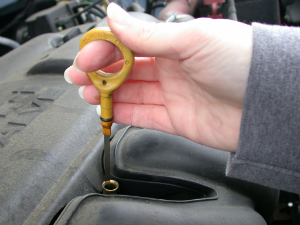Posted on 5/26/2016

At one time, there were only a couple of choices for motor oil. Today, that is no longer the case, and hasn't been for quite some time. Here's a quick breakdown of what you need to consider when it's time for an oil change: Viscosity: Viscosity is how thick your oil is, and how it retains its pour properties at various temperatures. In this respect, synthetic oil is far superior. Conventional oils will thicken in cold weather and thin out when very hot, while the viscosity of synthetic is much more uniform. Check your owner's manual -- many newer models require a thinner, lower-viscosity oil, which also helps the engine run more efficiently. Viscosity is expressed as a numerical value -- the lower the number, the thinner the oil. Many are designed to work at various viscosities, i.e. a rating like 5W-30. Premium Conventional Oil: For most vehicles, premium conventional oil is just fine. Conventional oil does a good job of protecting engine parts from wear and overheating, and is availa ... read more
Posted on 4/14/2016

If you’re old enough, you probably remember the cars from the late 70s and early 80s that weren’t good for much more than 120,000 miles before they started to develop real problems and were junkyard bound. Today, thanks to improvements in design, metallurgy, manufacturing techniques and machining, those days are over and it’s not at all unusual to see vehicles with well over 200,000 miles on the odometer and still running strong.Here’s a quick rundown of some vehicles to consider which have a track record of being good for 250k miles or more: Toyota Corolla: Probably not a surprise to fans of Toyotas, the simple, no-frills Corolla hasn’t changed much since the early 00s…but Toyota’s approach to the tried-and-true Corolla is, “if it ain’t broke, why fix it?” The Corolla has a reputation for just soldiering on down the road with little need for anything more than routine maintenance. Honda Civic: The Honda counterpart to the Cor ... read more